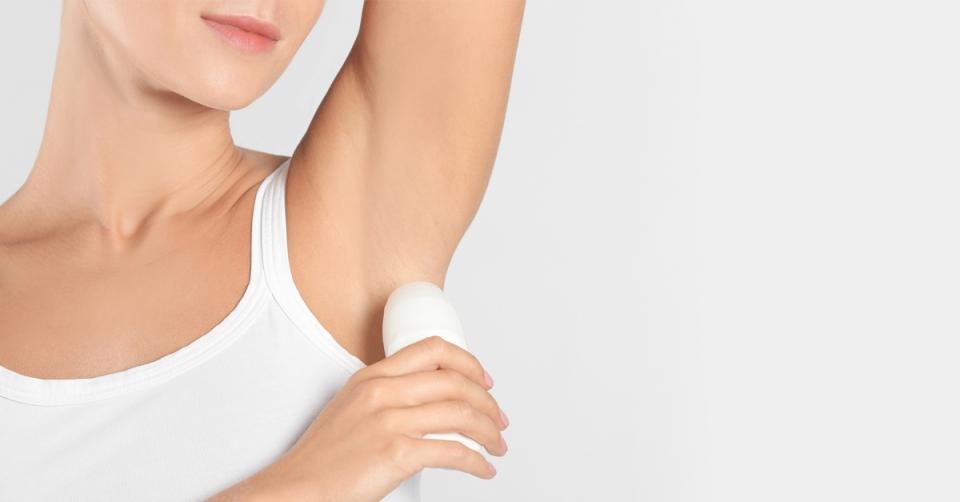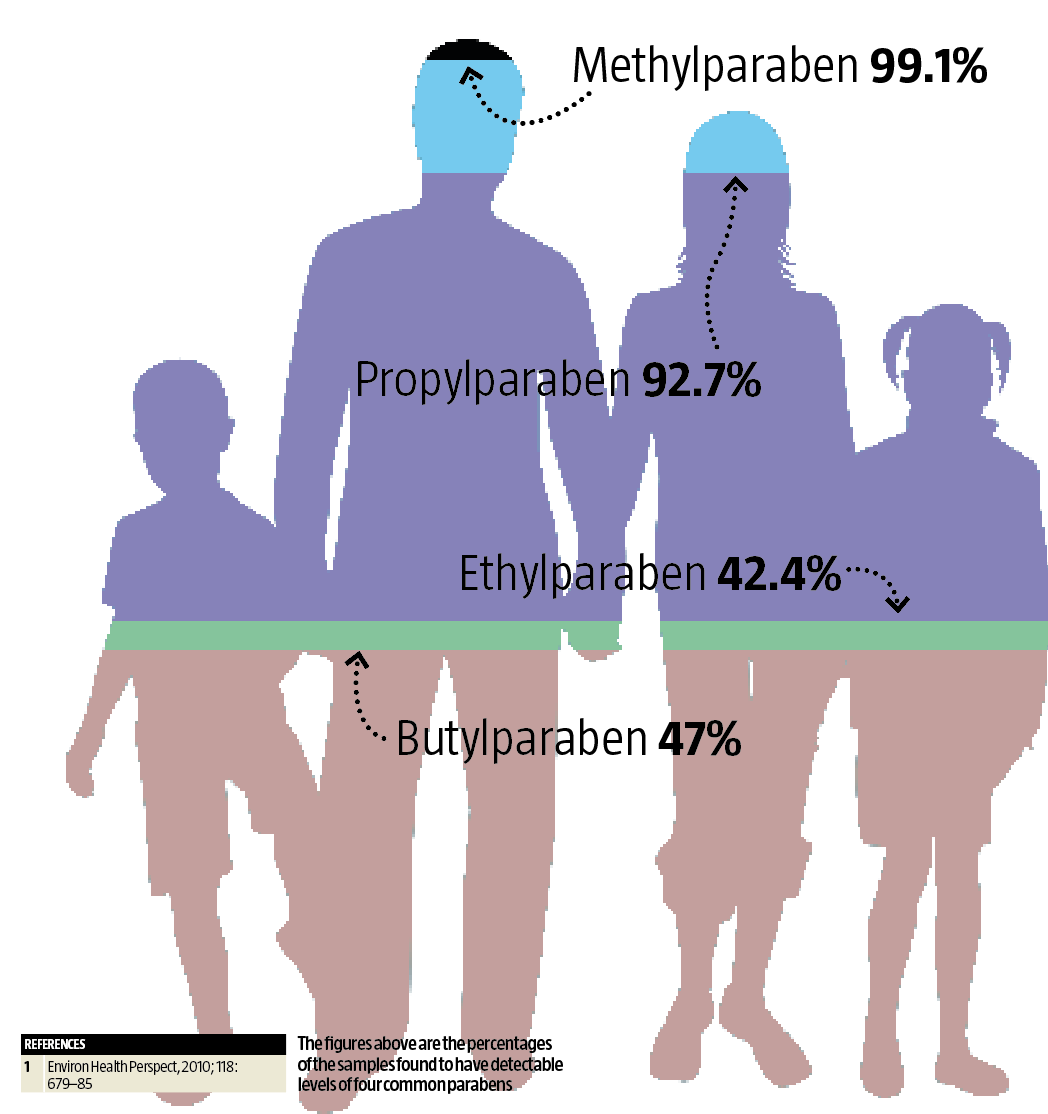 Share on Facebook
Share on Facebook

Parabens are in everything from hair products to headache pills. Here's what you need to know about these problematic preservatives
What are they?
Parabens are a group of synthetic preservatives widely used in cosmetics and toiletries to stop bacteria and other microbes from growing in them. Methylparaben, ethylparaben, propylparaben and butylparaben are some of the most common parabens, and you'll typically find more than one in a single product.
Where are they found?
As well as makeup, moisturizers, body lotion, hair products, shaving gel, toothpaste and other personal care items, parabens can also be found in food and drinks, and a broad range of pharmaceuticals including topical steroids, cough medicine, antidepressants, antihistamines and over-the-counter painkillers.2
What's wrong with them?
Whether they're inhaled, ingested or absorbed through the skin, parabens can easily get into our bodies—they've been detected in nearly every bodily fluid there is.1 It's a worry because these pervasive preservatives have been linked to a variety of serious health conditions, from allergies to cancer.
What can you do about them?
Check product labels carefully and avoid buying anything with 'paraben' on the ingredients list (e.g., methylparaben or propylparaben). In food, parabens will be listed as E numbers instead (e.g., E218 is methylparaben and E214 is ethylparaben).
If you focus on eating fresh, whole foods, you should be able to avoid parabens in your diet. With cosmetics, choose brands that make paraben-free, preferably all-natural formulations, which thankfully are no longer hard to find.
Parabens in people
A study by the US Centers for Disease Control and Prevention measured parabens in urine samples from just over 2,500 men, women and children, and found methylparaben and propylparaben in nearly all of them. Women and teenage girls had higher paraben levels than men and teenage boys, suggesting that greater use of cosmetics and personal care products might be to blame.1

Paraben-free beauty
There's no need to put paraben-packed products on your skin. A growing number of beauty brands have ditched these problematic preservatives from their formulations, and some chemically conscious companies have steered clear of them from the start, using more natural means to preserve their products, such as eliminating water content (bacteria grow rapidly in water), carefully controlling the product's pH (a slightly more acidic value can prevent bacteria growth) and adding naturally preservative ingredients like vitamin E, essential oils and plant alcohols into their products.
We recommend choosing all-natural products whenever possible. Here are some of our favorite brands.
Health concerns
Parabens have been linked to the following health problems:
Cancer. UK researchers discovered one or more parabens in 99 percent of the breast cancer tissue samples they analyzed.1 And test tube studies have found that parabens—at the levels found in human breast tissue—can increase the growth of human breast cancer cells.2
Allergies. Children with high levels of parabens in their urine are more likely to have asthma, food sensitivities and other allergies.3
Skin damage. One laboratory study found that methylparaben, when applied to skin tissues and exposed to sunlight, caused DNA damage, which could lead to skin aging and even skin cancer.4
References
1.) Side Effects of Drugs Annual, 2015: 603-19
2.) Reprod Toxicol, 2015; 52: 93-100; Dermatitis, 2008; 19: 38-42
3.) Environ Health Perspect, 2010; 118: 679-85
4.) J Appl Toxicol, 2012; 32: 219-32
5) J Appl Toxicol, 2013; 33: 390-83
6.) J Allergy Clin Immunol, 2012; 130: 453-60.e7; Allergy Asthma Proc, 2014; 35: 475-81
7.) Chem Res Toxicol, 2008; 21: 1594-9
https://www.wddty.com/lifestyle/2019/02/the-problems-with-parabens.html?utm_source=Boomtrain&utm_medium=email&utm_campaign=enews_01032019&bt_ee=87cF8m4sJX8mwwF4h42bCNFdVOHYmE0CvtqI7BW1joyU%2B2oEx2T1sDxwc2En5H9v&bt_ts=1551443790741



